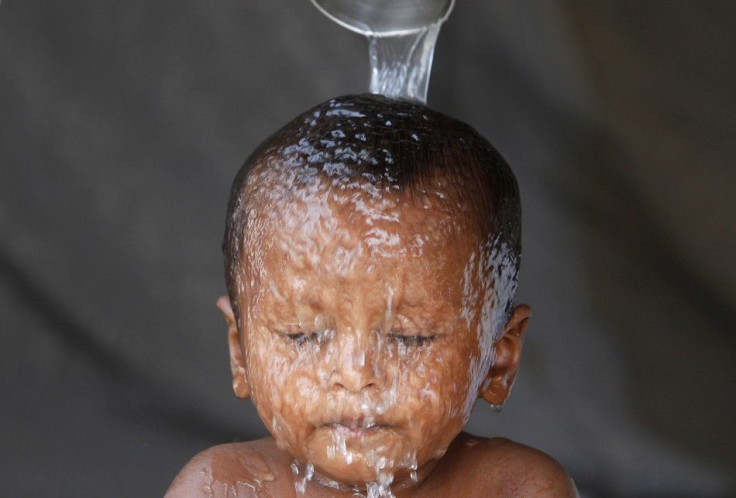Global 'Water Crisis' Looming, Secretary Clinton Warns

Access to potable water could become a major source of conflict and unrest around the world in coming years, according to an intelligence report cited by U.S. Secretary of State Hillary Clinton.
Steadily rising populations will increase demand for water even as they more rapidly deplete the aquifers that supply it, according to a classified National Intelligence Estimate commissioned by Clinton. Floods and droughts could exacerbate the problem.
Water scarcity will be a particularly acute problem in states with ineffective governments or impoverished populations, where rising tensions over water will likely increase the risk of instability and state failure, exacerbate regional tensions, and distract countries from working with the United States on important policy objectives, according to a copy of the report obtained by the Associated Press.
Water As A Weapon?
The report says the shortage isn't likely to cause clashes between nations over the next decade, but adds: We judge that as water shortages become more acute beyond the next 10 years, water in shared basins will increasingly be used as leverage; the use of water as a weapon, or to further terrorist objectives, also will become more likely beyond 10 years.
Control of water supplies could affect the geopolitical balance of power, the report warns, predicting that upstream nations will exert influence over their downstream neighbors by controlling the flow of water. Water-related infrastructure including reservoirs and bridges could emerge as a terrorist target.
Clinton was to stress the issue's importance during an address at the World Bank to commemorate World Water Day on Thursday. By 2025, more than two-thirds of Earth's population could live in areas struggling to provide enough water, she will say.
The water crisis is a health crisis, it's a farming crisis, it's an economic crisis, it's a climate crisis, and increasingly, it is a political crisis, reads the text of Clinton's prepared remarks. And therefore, we must have an equally comprehensive response.
Unsanitary water contributes to diseases that kill more than 5,000 people a day, while women and children in developing countries often spend hours every day walking long distances to obtain water, Clinton notes.
Water security for us is a matter of economic security, human security, and national security, because we see potential for increasing unrest, conflicts, and instability over water. The top U.S. diplomat will also stress the need to reduce the risk associated with extreme water events such as floods and droughts.
Clinton also will point to efforts by the U.S. Agency for International Development to combat water problems, including projects in Indonesia and Haiti to advance sanitation and hygiene and collaboration with the Philippines and Japan aimed at providing access to private loans.
© Copyright IBTimes 2025. All rights reserved.





















